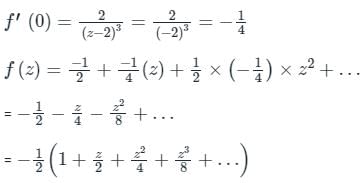Mechanical Engineering Exam > Mechanical Engineering Tests > Test: Taylor Series - Mechanical Engineering MCQ
Test: Taylor Series - Mechanical Engineering MCQ
Test Description
10 Questions MCQ Test - Test: Taylor Series
Test: Taylor Series for Mechanical Engineering 2025 is part of Mechanical Engineering preparation. The Test: Taylor Series questions and answers have been prepared
according to the Mechanical Engineering exam syllabus.The Test: Taylor Series MCQs are made for Mechanical Engineering 2025 Exam.
Find important definitions, questions, notes, meanings, examples, exercises, MCQs and online tests for Test: Taylor Series below.
Solutions of Test: Taylor Series questions in English are available as part of our course for Mechanical Engineering & Test: Taylor Series solutions in
Hindi for Mechanical Engineering course.
Download more important topics, notes, lectures and mock test series for Mechanical Engineering Exam by signing up for free. Attempt Test: Taylor Series | 10 questions in 30 minutes | Mock test for Mechanical Engineering preparation | Free important questions MCQ to study for Mechanical Engineering Exam | Download free PDF with solutions
Detailed Solution for Test: Taylor Series - Question 1
Detailed Solution for Test: Taylor Series - Question 2
Detailed Solution for Test: Taylor Series - Question 3
Detailed Solution for Test: Taylor Series - Question 4
Test: Taylor Series - Question 5
If the principal part of the Laurent’s series vanishes, then the Laurent’s series reduces to
Detailed Solution for Test: Taylor Series - Question 5
Test: Taylor Series - Question 6
In the neighbourhood of z = 1, the function f(z) has a power series expansion of the form
f(z) = 1 + (1 − z) + (1 − z)2 + ....... ∞
Then f(z) is
Detailed Solution for Test: Taylor Series - Question 6
Detailed Solution for Test: Taylor Series - Question 7
Test: Taylor Series - Question 8
The value of y at x = 0.1 to five places of decimals, by Taylor's series method, given that dy/dx = x2y−1, y(0) = 1, is
Detailed Solution for Test: Taylor Series - Question 8
Detailed Solution for Test: Taylor Series - Question 9
Detailed Solution for Test: Taylor Series - Question 10
Information about Test: Taylor Series Page
In this test you can find the Exam questions for Test: Taylor Series solved & explained in the simplest way possible.
Besides giving Questions and answers for Test: Taylor Series, EduRev gives you an ample number of Online tests for practice
Download as PDF


 . Then f(100)(54) is given by
. Then f(100)(54) is given by (x) +........∞
(x) +........∞





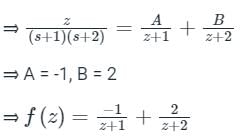


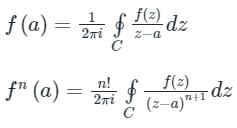
 f(z)dz = 2πi × [sum of residues at the singualr points with in C]
f(z)dz = 2πi × [sum of residues at the singualr points with in C]

 where Cis the circle |z-1| = 2;
where Cis the circle |z-1| = 2;

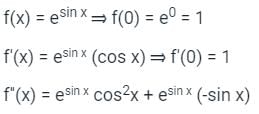









 is called the singular part, and if that vanishes the terms that remain will be
is called the singular part, and if that vanishes the terms that remain will be  , which is nothing but Taylor series.
, which is nothing but Taylor series.


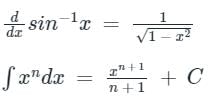
 ....(1)
....(1)

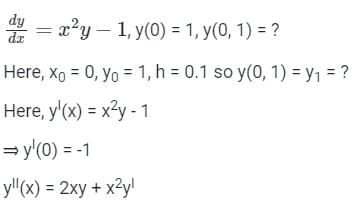
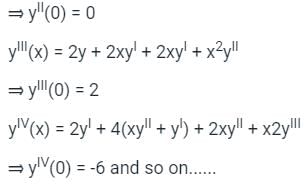





 is
is
